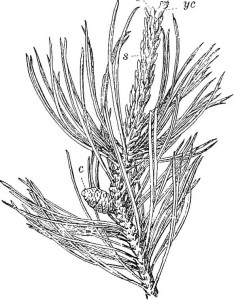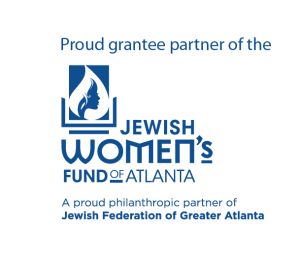The Lilith Blog 1 of 2
September 27, 2018 by Roseanne Benjamin
The Sukkot Ritual That Meant Everything to Me
Growing up, my family loved to celebrate the holidays. Jewish, non-Jewish, it didn’t seem to matter. I delighted in making my own Halloween costumes and Valentine’s Day cards. We decorated the house with flags every year on the 4th of July, ate cherry jelly candy on Washington’s Birthday, and looked forward to my mom’s boiled cabbage and corned beef on St. Patrick’s Day, when we all wore green, of course.
There were huge family dinners on Rosh Hashanah and on Passover. I looked forward to dressing up as Queen Esther on Purim. My father’s pride and joy was our backyard sukkah, and each year I held the stakes as he wrapped them in burlap and watched as he threw cornstalks across the roof.
 But every year, Hoshana Rabbah loomed large, because it was my “special holiday.” According to family lore, I was born on Yom Kippur, and because we lived in Philadelphia, my dad and the Jewish obstetrician celebrated my birth by splitting a cheesesteak. A week and a half later, I was named in synagogue on the day that randomly happened to be Hoshana Rabbah.
But every year, Hoshana Rabbah loomed large, because it was my “special holiday.” According to family lore, I was born on Yom Kippur, and because we lived in Philadelphia, my dad and the Jewish obstetrician celebrated my birth by splitting a cheesesteak. A week and a half later, I was named in synagogue on the day that randomly happened to be Hoshana Rabbah.
What is Hoshana Rabbah? It’s the 7th day of Sukkot, when many Jews parade seven times around the synagogue (seven hakafot) with a lulav and etrog, singing hoshanot, or songs of praise. At the conclusion of the service, a bundle of willow branches is beaten until the leaves fall off to symbolize the elimination of sin. Some Jews believe that it’s an addendum to Yom Kippur, the very last chance to atone, because even though the judgment is sealed on Yom Kippur, it’s not “delivered” until the last day of Sukkot, and can still be changed. It’s a rather strange little holiday, and honestly, if you’ve never heard of it, well, many Jews haven’t.
Every year, from the time I was six until I went to college, my father took me to Hoshana Rabbah services at our synagogue. “It’s our holiday, Rose!” he exclaimed as he woke me. We were up before dawn and drove to the service as the sky was turning pink and orange. I didn’t normally have alone time with my dad, a busy psychiatrist who worked long hours in the hospital all day, came home for dinner, and then went back to work, seeing patients until 10:00 PM in his home office. I always suspected that he had more in common with my three math-and-science inclined brothers, with whom he could watch marathons of Star Trek, than he did with me, his artistic and literary daughter. But Hoshana Rabbah was our special day, and my brothers stayed home with my mom.
My dad could be very hard on me: the pencil guidelines were never straight enough on my posterboards, my times tables never learned well enough, and ultimately, per my dad, my SAT scores could not possibly be high enough to get me into any college. But I think he recognized in me something he also saw in himself—both a deep connection to Judaism, and the ability and patience to sit quietly and enjoy the aesthetics of a synagogue service. (As I got older, Kol Nidre, too, was included in “our special services.” The first time we went, my father was practically vibrating with excitement in the dusky parking lot, “just wait ‘til you hear the cantor sing this prayer, Rose! It’s the best!”)
Hoshana Rabbah felt like an adventure. I cherished the attention of being the only child in the chapel at morning minyan, standing next to the cantor as he counted the (mostly) men straggling in, and then finding my seat and braiding the tzitzit of my dad’s tallit when it was time to start. I loved marching around the synagogue gripping the heavy lulav or the fragrant etrog, and I loved beating the long branches that my father clipped from the willow tree in our front yard against the synagogue seats.
After the service, we gathered in the conference room and ate bagels and packets of instant oats, and the older men from the minyan complimented my father on his little girl. My dad would drive me to school with the sounds of hoshana still in my head, and I would sit all day thinking about the early morning service.
My association with Hoshana Rabbah came to an abrupt end when I was 18 and away at college. My father had mailed me a lulav and etrog and told me to find a Hoshana Rabbah service on the campus and think of him. I did, but the only denomination on the Barnard-Columbia campus holding a service that day was Orthodox. Unlike our Conservative shul at home, here was a mechitza, and someone told me I had to give up my lulav to one of the men. In my memory at least, the men marched on their side of the divider, and the women didn’t participate. I had never been to an Orthodox service before, and I could not conceive of a Judaism that would separate a father and daughter. I left feeling confused and angry, and I never again tried to go.
***
These days, I’m a divorced mom with three kids, 13, 9, and 5. In the intervening years, I have felt my world narrow and then crash, as full-time motherhood engulfed my interests, and then divorce yanked the rug out from under me.
Interestingly, I am finding more and more that sometimes I need to go backwards in order to move myself forward. Inspired by my older son’s bar mitzvah last May, I took it upon myself to relearn the haftarah from my own bat mitzvah, which originally took place on the second day of Sukkot. It was a gigantic and humbling task for someone who could never quite read Hebrew and was never taught the basics of cantillation, but it was also exhilarating—because if I could do that, what else is possible?
In the process of preparing to read haftarah on Sukkot, I noticed that Hoshana Rabbah this year will fall on a Sunday morning. I wish that I could bring my dad, but he’s two states away, a distance that often means having to choose between seeing my family and being able to go to my synagogue whenever the Jewish holidays arrive. My children are not as patient with services as I once was, but nonetheless, I have been wondering what it would be like to see and hear “my” childhood service once again, and to bring them. I wonder if the melodies would be the same, and if marching with my own kids would feel like the completion of a circle.
My memories of that time in my life are all sensory, and when I think back, my fingers can still feel the bumpy etrog skin that left its intoxicating oils on my fingers, the sound of the plush synagogue seats as they flipped upward when we stood, the bright green rug in the chapel, the clean vegetative smell of cut leaves and branches, and of course, always, always the sounds of the hoshanot, which I can still conjure in the sonorous voice of the cantor, my father’s nasal but enthusiastic voice joining in, as we marched along together, and I basked in my father’s warmth.
I would really like to go again. I mentioned “Grandpop’s special service” to my daughter already, and she seemed intrigued by the idea of beating willow branches. So, we’ll see. One way or another, I would like to open my life back up to songs of praise, and to traditions old…and possibly also new.
Roseanne Benjamin is a freelance writer in Manhattan.

The views and opinions expressed in this article are the author’s own and do not necessarily reflect those of Lilith Magazine.
 Please wait...
Please wait...
